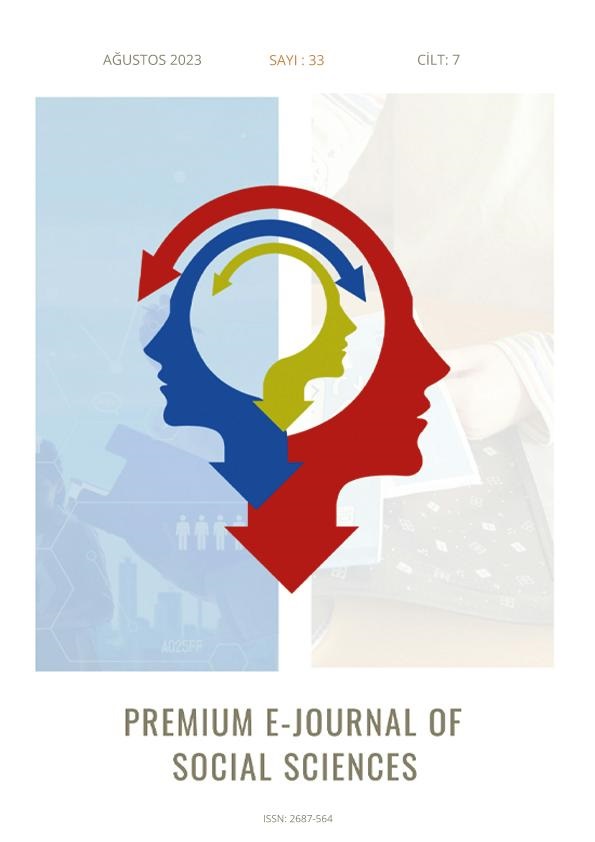The Effect of Behavioral Finance on Company Profitability and Company Growth: An Implementation on Airline Companies
DOI:
https://doi.org/10.5281/zenodo.8289944Keywords:
Behavioral, Finance, Company, Profitability, Growth, AirlineAbstract
Traveling in aviation is a great experience in the world, both economically and similarly. It is shaped by cultural and economic transitions such as the acceleration of aviation and the shortening of distances. In this regard, they are close to a future in the country they are affiliated with, they provide in the country and at the same time they carry all the national flags in the affiliated countries. The fact that the economies of the countries are very high, especially thanks to the technologies of the industry, also proves its predictability.
It is a necessity for education in the aviation sector, which is the most popular of the service sector, and the growth and growth of the passenger mass in the good sector. Evaluating the analysis of these economic investments evaluates their valuation. Because education system teaching always takes reel-based and technical analysis into consideration.
The design, which plays a role in the construction sector in Turkey, will contribute to the growth and profitability of their own financial investments. It is correct with its example and qualification as well as reading the passenger and passenger differences well on the road. In addition, it is important to evaluate the brand value and the policies of the institution positively.
It is above the general passenger and eye field surveys conducted in this area. In this general application area, the results obtained from the analysis of the dem graphic dimensions (such as education) and the future report are given below.
Downloads
References
An, M. & Noh, Y. (2009). Airline Customer Satisfaction and Loyalty: Impact of In-Flight Service Quality. Service Business, 3, 293-307. https://doi.org/10.1007/s11628-009-0068-4
Barak, O. (2006). Hisse Senedi Piyasalarında Anomaliler ve Bunları Açıklamak Üzere Geliştirilen Davranışsal Finans Modelleri İMKB’de Bir Uygulama [Doktora Tezi]. Gazi Üniversitesi.
Bernstein, W.(2005). Yatırımın Dört Temel Tası (Çev. Nesenur Domaniç, Nusret Avhan). Scala Yayıncılık
Ceylan, A. & Korkmaz, T. (2013). Finansal Yönetim Temel Konular. Ekin Yayınevi.
Cornicello, G. (2004). Behavioral Finance and Speculative Bubble. University Commercials Luigi Bocconi [Master Thesis]. Milano.
Daniel, K., Hirshleifer, D., & Teoh S.H. (2002). Investor Psychology in Capital Markets: Evidence and Policy Implications. Journal of Monetary Economics, 49, 139–209.
Küçük, A. (2014). Bireysel Yatırımcıları Finansal Yatırım Kararına Yönlendiren Faktörlerin Davranışsal Finans Açısından Ele Alınması: Osmaniye Örneği. Akademik Araştırmalar ve Çalışmalar Dergisi, 6(11), 104-122.
Nergiz S. (2019). Havacılık ve stres. https://www.havayolu101.com/2019/07/15/havacilik-ve-stres/ Erişim: 24.10.2022.
Nofsinger, J.R. (2005). The Psychology of Investing, (2nd Edition). Pearson Education Hall.
Sarıkamış, C. (2000). Sermaye Pazarları. Alfa Yayınları.
Tekin, B. (2016). Firmaların Finansman Kararları: Davranışsal Perspektif. Akademik Araştırmalar ve Çalışmalar Dergisi, 8(15), 169-198.
Tufan, C. & Sarıçiçek, R. (2013). Davranişsal Finans Modelleri, Etkin Piyasa Hipotezi ve Anomalilerine İlişkin Bir Değerlendirme. Trakya Üniversitesi Sosyal Bilimler Dergisi, 15(2), 159-182.
Tunçel, A. K. (2012). İstanbul Menkul Kıymetler Borsasında Yılın Ayı Etkisi. Yönetim Bilimleri Dergisi, 10(19), 1-30.
Türkay, U. İ. & Artar, O. (2021). Havacılık Sektöründe Havalimanlarının Dijital Dönüşümü. Working Paper Series, 2(1), 86-97.
Urğut, M. & Songur, A. (2002). Yenilikçiliğin Çalışan Performansına Etkisi: Havacılık Teknisyenleri Üzerinde Bir Araştırma. Süleyman Demirel İktisadi ve İdari Bilimler Fakültesi Dergisi, 27(33), 393-407.
Downloads
Published
How to Cite
Issue
Section
License
Copyright (c) 2023 Premium e-Journal of Social Science (PEJOSS)

This work is licensed under a Creative Commons Attribution 4.0 International License.


